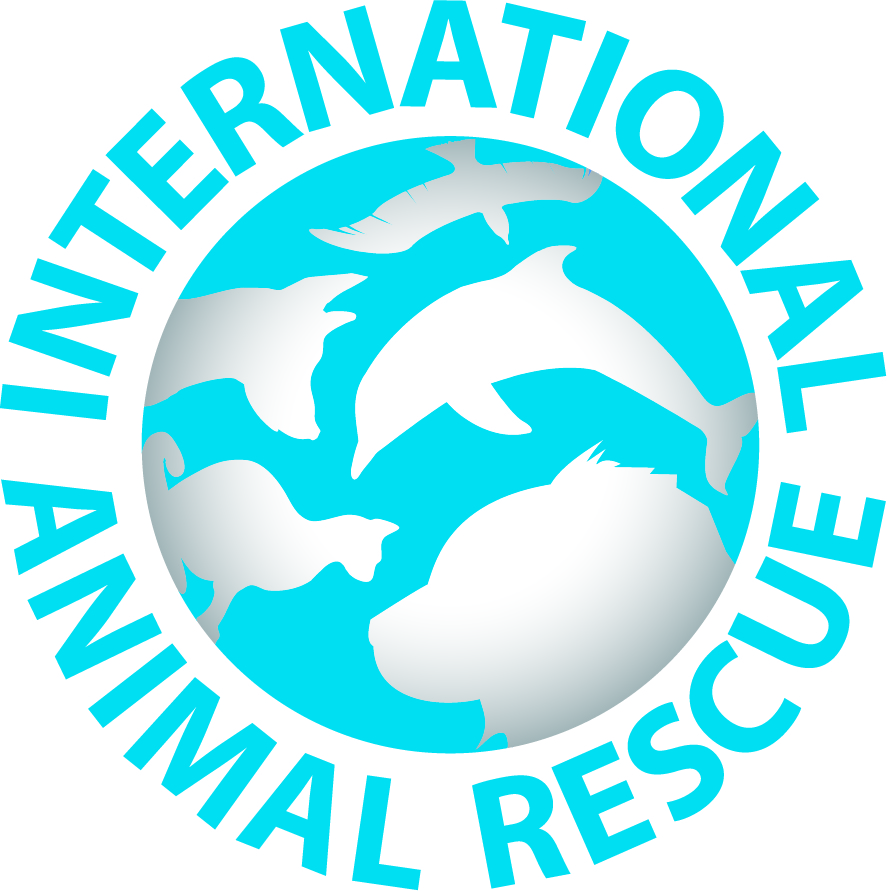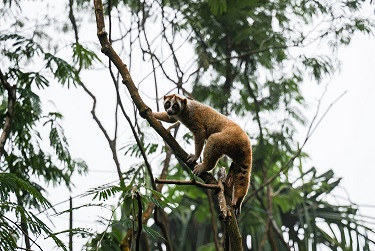
Thirty slow lorises are returned to their home in the Indonesian rainforest.
UNITED KINGDOM / AGILITYPR.NEWS / January 26, 2021 / Thirty slow lorises formerly kept as pets are returned to the Indonesian rainforest.
Continuing conservation activities, even in the midst of a pandemic.
https://www.dropbox.com/sh/wtkbyc4r772a231/AACrdGNVWa0Z6v__7J_CSbZOa?dl=0
Photos and footage copyright IAR Indonesia.
A team of conservationists has reintroduced 30 Javan slow lorises into their natural habitat in a national park in Indonesia. The release operation in Mt Halimun Salak National Park (TNGHS) was carried out by the Centre for Natural Resources Conservation (BBKSDA) in collaboration with the TNGHS office and International Animal Rescue (IAR) Indonesia.
The lorises were released in two groups of 15. Both groups would spend up two weeks in a habituation enclosure before finally being given their total freedom.
The Head of the BBKSDA, Ammy Nurwati explained that most of the lorises had been surrendered by members of the community to various sections of the BKSDA in the West Java region and had then been entrusted to the IAR Indonesia Primate Centre in Bogor to undergo treatment and care. Before being released, the lorises had undergone a recovery and treatment process to stimulate their natural behaviour. Starting with medical examinations and a period in quarantine, they then underwent behavioural observations until they were declared healthy and ready to be translocated for habituation and then final release.
“During the habituation process, the team in the field continues to observe and record their progress every night. If, during the habituation period, all lorises are active and don't have any abnormal behaviours, then they can be released into the wild," explained Ammy. “They have to go through this long process to restore their natural instincts and ensure that they can survive and reproduce in their natural habitat.”
Ammy added that, apart from providing a second chance for the lorises, the slow loris release programme was created to support the sustainability of ecological processes in the conservation area, as well as to maintain and increase the population of primate species as endemic animals whose numbers are decreasing.
Ahmad Munawir, Head of the TNGHS Office, said the release of rehabilitated animals and conflict animals in the TNGHS area has become one of the most important programmes in terms of saving wildlife. The slow loris is one of the wild animals that has an important role in the balance of the ecosystem in the TNGHS area. Therefore, the release of the 30 slow lorises is important and the efforts of all those who help to make it run smoothly are greatly appreciated.
He explained that TNGHS was chosen as the release location based on a habitat suitability assessment that had been carried out by a team from the TNGHS Office and IAR Indonesia. The release area has an ecosystem considered suitable as a place for the preservation and protection of slow lorises in terms of area security, availability of food and shade, habitat carrying capacity and the level of predator threats. The hope is that with this release, the slow lorises can reproduce and thrive.
He added that the programme also involves local communities around the release site in every aspect of the slow loris conservation programme, starting from translocation to monitoring. This involvement is vital so that they can jointly help preserve and protect slow lorises in their habitat from various threats.
In order to minimise all risk of disease transmission, the safety procedures at IAR’s primate centre in Bogor have been strengthened even further in relation to the pandemic situation. Starting from the COVID-19 test for lorises and the teams, using masks, reducing contact with animals and reducing personnel directly involved in the field. The COVID-19 test carried out on lorises is a swab-test to ensure that all of them are free from the potential risk of transmitting COVID-19 to wild loris populations in the wild.
Alan Knight OBE, IAR Chief Executive, explained: “The health and safety protocols in this release activity were improved to minimise the risk of disease transmission. From the animal-side, a swab-test was carried out in the laboratory facility of the Centre for Study of Primates - IPB University and the results were all negative. And, from the human side, the implementation of all protocols was carried out correctly.
“All adjustments in this release procedure are part of efforts to eliminate the potential for transmission of COVID-19 and other zoonotic infectious diseases. So that our release and other conservation activities can continue, even in the midst of the COVID-19 pandemic.”
Ends.
For further information, please contact Lis Key at IAR on +44 7957 824379.
www.internationalanimalrescue.org

A Critically Endangered Javan slow loris returns to the rainforest after rehabilitation at the International Animal Rescue primate centre in Bogor, West Java.
About Us
Our vision is a world where humans and animals coexist in sustainable ecosystems. Our mission is to build awareness and implement effective systems so that habitats and animals are protected.
At International Animal Rescue we not only save animals from suffering, we also rehabilitate and release them back into the wild and work to protect their precious natural habitats. Our work includes cutting free and caring for captive bears in India and Armenia, rescuing and rehabilitating orangutans and other primates in Indonesia and treating injured and orphaned howler monkeys in Costa Rica. Our aim is to return animals to their natural environment wherever possible, but we also provide a permanent home for those that can no longer fend for themselves.
As human populations expand, wildlife comes under increasing threat. By rescuing individual animals belonging to species like the orangutan and reintroducing them into protected areas in the wild, our work also plays a role in the conservation of the species as a whole.
Contacts
Lis Key
Media and Communications
lis@internationalanimalrescue.orgPhone: +44 7957824379 Mobile: +44 7957824379